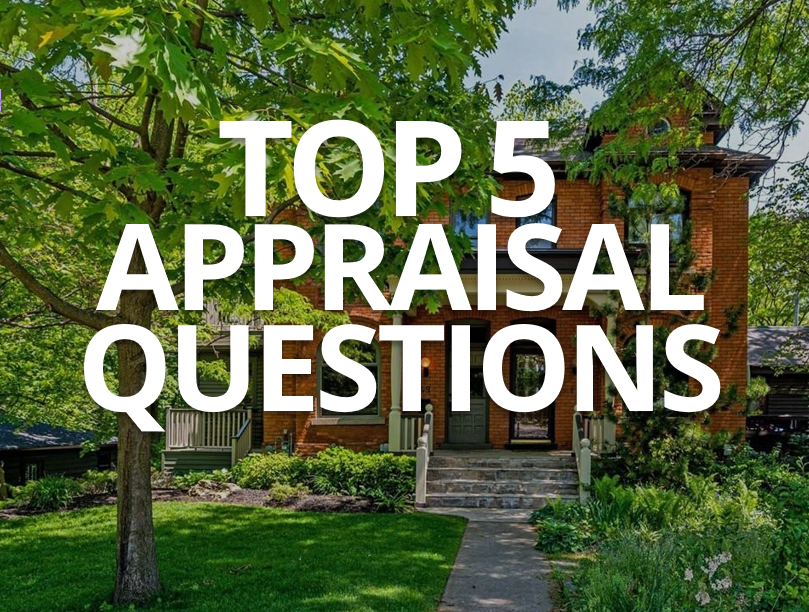For many years, as a practicing appraiser, I didn’t have a huge amount of contact with homeowners or residents. A financial institution would call with an appraisal request, I’d make arrangements with the real estate agent to pick up the keys or access the lockbox, and do the inspection when the owners or residents were at work. It was left to the real estate agent or mortgage provider to explain the appraisal process to their clients.
But these days, more people are working from home, and therefore present during the inspection. In the case of remote appraisals, we’re having to do more coordination with residents because we’re asking them to take photos or videos of building interiors that we’re not entering due to the pandemic.
More contact means more questions
More interaction with homeowners naturally means more opportunity for questions. Here are the 5 most-frequently-asked questions we’re asked these days.
1. “So, what’s it worth? I mean, just a ballpark, for my own curiosity…”
Whether we’re in a pandemic or not, all appraisers know this is the question they’re asked most often when they’re on site. And it doesn’t get easier to say “I’m sorry, I wouldn’t even be able to ballpark it until I get back to the office and take a look at the comps.”
2. “How much is this costing me?”
This is a tough one: I know how much I am being paid for the appraisal, of course, but I don’t know whether the bank or mortgage company is treating the appraisal fee as a flow-through cost, or whether they’re marking it up, or whether they’re offering it free to the client as a value-add. What’s more, in most cases it’s the purchaser, not the existing homeowner, who is paying for the appraisal – but I don’t always know that part of the arrangement, either.
“I’m sorry, I’m not privy to those details. You’d need to speak with your agent or whoever’s handling the financial transaction.”
3. “What happens if the appraisal comes in higher/lower than the purchase price?”
Sometimes this question stems from genuine concern that the house sale won’t go through if the appraised value is a lot lower than the sale price; other times it stems from a hope that one or other of the parties has gotten a ‘deal’. Either way it’s a potential minefield, of course – and it’s impossible for the appraiser to know what the outcome might be.
“As a certified appraiser, my job is to come up with an objective valuation supported by market data. You’d need to speak to your agent or financial institution if it turns out there’s a variance.”
4. “You’re going to adjust for the fact that the house down the street sold a couple of days ago for $100k over asking, right?”
It’s true that in the currently super-hot southern Ontario market, properties are regularly selling for tens of thousands of dollars more than asking price. But an asking price isn’t really an indicator of value, especially when a house is priced slightly lower than the rest of the houses in the area in an effort to attract offers, knowing that the final contract price will be way above the amount shown in the listing.
“We’ll definitely be looking at all the recent sales in the immediate neighbourhood when we’re arriving at a valuation for the property. But appraisers are really focused on the final sale price and the date the sale occurred – the difference between asking and sale price isn’t really a factor in that.”
5. “Can you send me a copy of the appraisal when you’re done? Just for my records.”
“I’m sorry – we can only share the final appraisal report with our client, which in this case is the financial institution. You’ll need to speak to them about getting a copy of the report.”
Remember, this is new to most people.
It’s important to remember that, for most people, buying or selling a home is the single biggest financial transaction they’re going to make in their lifetime, and they may only do it a handful of times over decades. So it’s not surprising that they ask questions, and, sometimes, get frustrated when the appraiser can’t or won’t provide the answers they’re looking for. It’s important to be patient!


